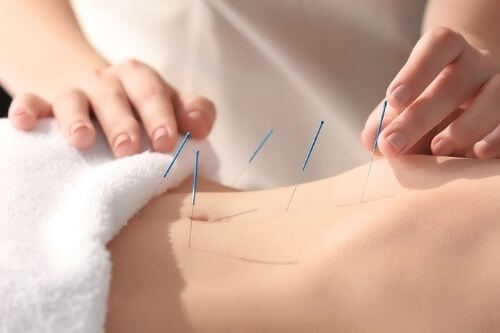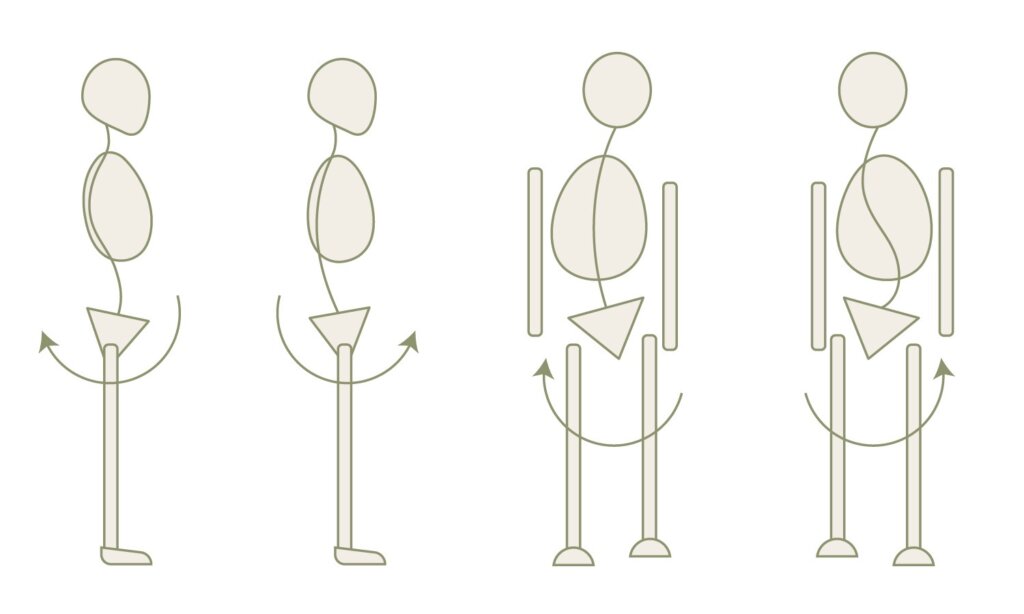
Acupuncture
Balance Your Energies
Acupuncture is a medical practice that involves the insertion of very fine needles into specific acupuncture points on the body, a method rooted in traditional Chinese medicine. Its purpose is to restore balance within soft tissues and internal organs, providing relief from discomfort.
Musculoskeletal conditions, among other health conditions such as chronic pain and joint issues, are common reasons why people seek acupuncture treatment in our Australian clinic. In many cases, simply massaging or rubbing the tender areas can increase blood flow and alleviate stiffness and tension. Acupuncture takes this a step further by targeting specific muscle groups and other soft tissues at a deeper level to provide more targeted treatment.
However, a lot of times when people come in to see an Acupuncturist or Chinese Medicine practitioner, their health conditions are often more complex. Before administering acupuncture treatments, including cosmetic acupuncture treatments, practitioners will typically assess the tongue, pulse, and body alignment. This information is crucial in identifying any imbalances, whether they exist within the soft tissues, channels or organs.

In Chinese Medicine theory, the body is considered a unified whole, with vital energy flowing along meridians to nourish the entire body. Health problems and illnesses occur when there is an insufficient flow of energy or ‘blockage’, resulting in the accumulation of toxins and poor organ functions. By stimulating specific acupuncture points on the corresponding weak and stagnant channels, practitioners aim to encourage the free flow of energy, release ‘blockage’, and restore balance.
What conditions can be treated with Acupuncture?
Acupuncture, as a complementary therapy, can be beneficial not only for pain relief and neurological issues but also for a wide range of internal illnesses including:
- Stress, depression & other emotional disorders
- Migraines, dizziness & vertigo
- Respiratory and allergy symptoms
- Digestive disorders
- Endometriosis & PCOS
- Hormone imbalance, pregnancy & menopause support
- Fatigue & thyroid issues
- Arthritis, inflammatory & autoimmune diseases
- Low immunity & chronic diseases
- Cancer treatment support
By activating the energy pathways in the body, acupuncture helps regulate the function of internal organs and promotes overall holistic healing.
Is Acupuncture safe?
Yes, the acupuncture needles used are single-use, sterilised, and pre-packaged, ensuring safety and hygiene. Children, pregnant women, and nursing mothers can also receive Acupuncture treatment, providing it is performed by a qualified and experienced Chinese Medicine acupuncturist.
How long does it take for Acupuncture to work?
The body’s response time varies depending on the condition and the individual. In some cases you may notice immediate improvement after treatment, while in others, it may take several sessions to experience the cumulative effect.
How long does it take for Acupuncture to work for pain?
Acupuncture can be very effective for pain management. It is not uncommon to experience improvements immediately after the treatment.
Who should not get Acupuncture?
People who have uncontrolled movements, such as acute epilepsy, or in need of emergency medical treatments or surgeries are not suitable to get acupuncture. Children under 16 years old will need to be supervised during the treatment.
What’s the difference between Dry-needling and Acupuncture?
Dry-needling is a form of Acupuncture, particularly used in musculoskeletal conditions with needles inserted and stimulated directly on problematic areas. Patients often experience sensations such as muscle twitches or dull aches during treatment. In our clinic, we practice a few different types of acupuncture depending on the patient’s condition.
